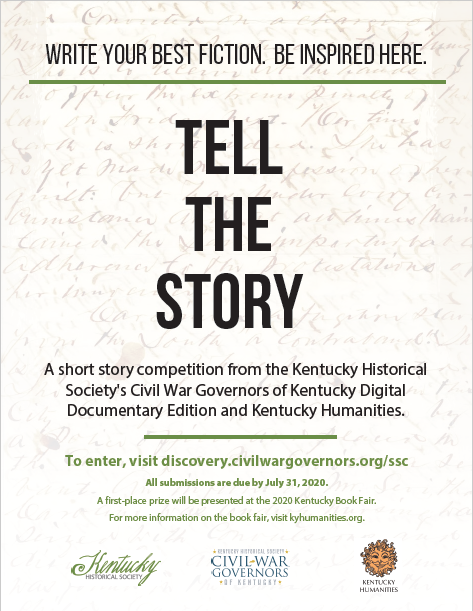We love a great story, especially those that help us see history in creative ways—from the perspective of the traveler, the child, the government official, the priest. Fiction has the potential to help us see a historical moment in a new light—helping us imagine the minute details, highlighting pieces of the story that might be buried.
We’re just a couple months away from the deadline for our inaugural short story competition. Need some inspiration? Our team is sharing some of their favorite stories below. We love the way these works of fiction point us to important historical moments, characters, and themes. Have you read them?

In Country
by Bobbie Ann Mason
(1985)
Mason tackles the complexities of the Vietnam War through the eyes of a teenager in Western Kentucky. Sam, the protagonist, grapples with her father’s death in Vietnam and her uncle’s PTSD and potential Agent Orange poisoning. The book is vivid—you can feel the uncertainty, the “thrill” of uncovering secrets and discovering the past—what I love most about doing history! In Country weaves ghosts and layers the ways families shield their pasts from their children into an exploration of the legacies of the Vietnam War for those who served and survived. It sparked my interest in the Vietnam War and legacies.
Bobbie Ann Mason is a Kentucky treasure and I just adore her! Thank goodness for Bobbie Ann and my high school English teacher, Roberta Schultz, who taught me about Kentucky art and culture long before I realized what she was doing! — Amanda Higgins, Community Engagement Administrator, Kentucky Historical Society

Silence
by Shūsaku Endō
(1969)
The year 1614 brought the official expulsion of Christian missionaries from Japan. Living underground, Christians faced persecution, and it was under this persecution that Christovao Ferreira renounced his faith. Silence traces the path of Padre Sebastian Rodrigues, a fictional Portuguese Jesuit priest, to Japan, where a leader of their faith community has apostatized. In the fictional account of the gripping emotional and spiritual experience of those involved, Endō brings forth themes of cultural difference and the multi-ethnic nature of the Christian faith. With his picture of the Christian experience in seventeenth-century Japan, Endō raises the question: What is the true nature of faith? — Sarah Haywood, Editorial Assistant, Civil War Governors of Kentucky Digital Documentary Edition

Death Comes for the Archbishop
by Willa Cather
(1927)
Death Comes for the Archbishop offers a fictionalized account of the pastoral journeys of two nineteenth-century historical figures: Archbishop Jean-Baptiste Lamy (Jean-Marie Latour) and his vicar apostolic, Joseph Machebeuf (Joseph Vaillant). Both clergymen left their native France to serve as missionaries in the United States, where they worked to establish an episcopal see in the American southwest. Cather narrates vivid descriptions of their encounters in isolated towns throughout the region, as they traveled by horseback to administer sacraments to the faithful.
The novel provides a rich understanding of the core features of Catholic theology and practices. By framing her story within the context of intercultural exchanges between Euro-Americans and Native Americans, Cather captures the religious hybridity that occurred. Death Comes for the Archbishop is a wonderfully written and engaging novel that introduces readers to a variety of historical processes, like the development and growth of religious institutions and westward expansion. — Carl Creason, Research Specialist, Civil War Governors of Kentucky Digital Documentary Edition

How Few Remain
by Harry Turtledove
(1997)
In high school, I had a penchant for reading alternate history, mostly the books from Harry Turtledove. The series that always stuck out to me the most was his Southern Victory series that posited what would happen if the Confederate states won the Civil War. It starts in the 1880s with a cast of historical figures—“Stonewall” Jackson, Samuel Clemens, and a disgraced Abraham Lincoln—during a second Civil War. Eventually the series carried into hypothetical analogs of both World Wars, with the U.S.A. and C.S.A. fighting on opposite sides.
I liked the series for the speculative power of its stories about people, the past, and an exercise in critical thinking. How would the world look different if the U.S.A. lost the Civil War and that spiraled into larger, global conflicts years later? — Chuck Welsko, Project Director, Civil War Governors of Kentucky Digital Documentary Edition



